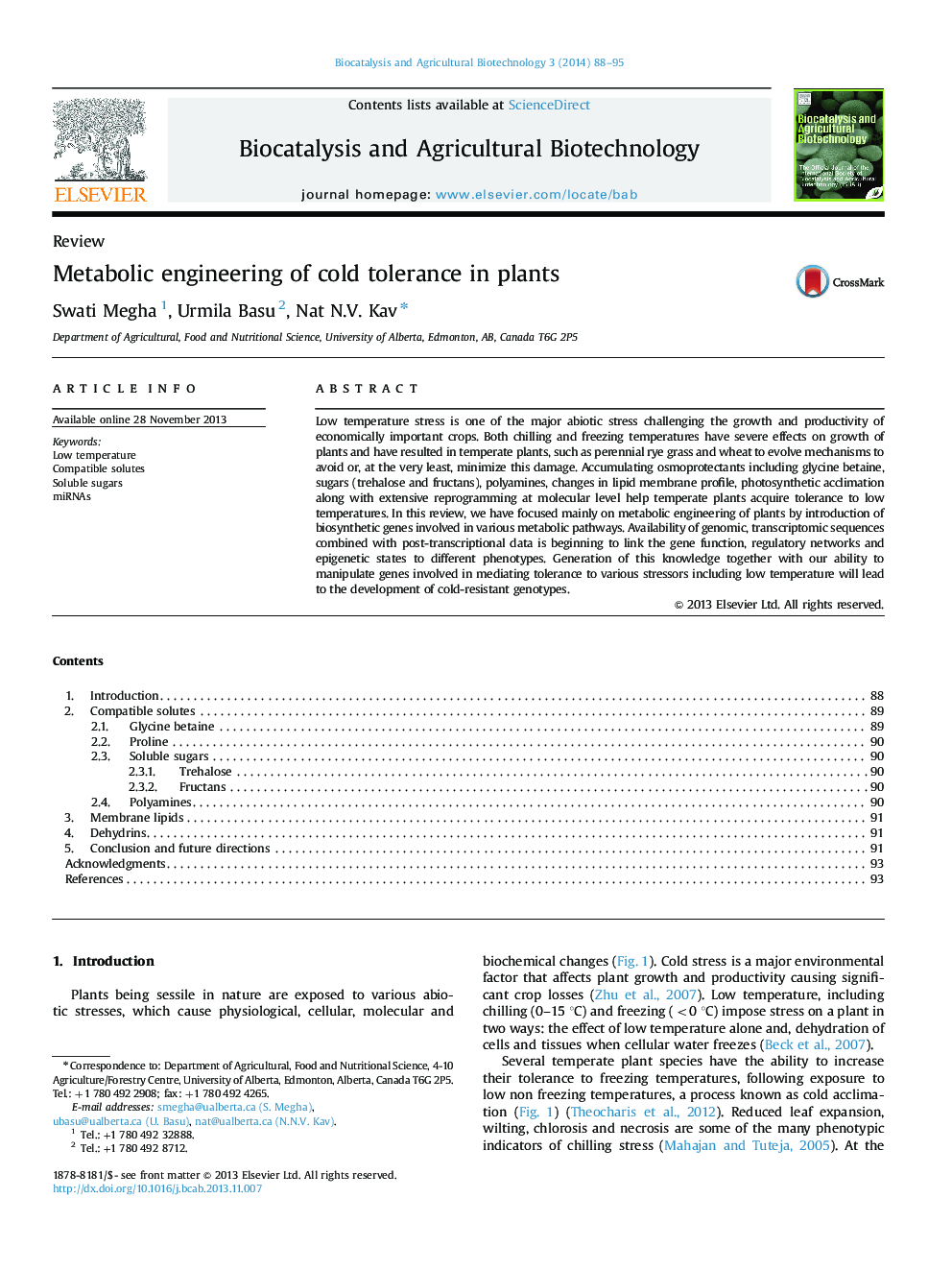| Article ID | Journal | Published Year | Pages | File Type |
|---|---|---|---|---|
| 10884469 | Biocatalysis and Agricultural Biotechnology | 2014 | 8 Pages |
Abstract
Low temperature stress is one of the major abiotic stress challenging the growth and productivity of economically important crops. Both chilling and freezing temperatures have severe effects on growth of plants and have resulted in temperate plants, such as perennial rye grass and wheat to evolve mechanisms to avoid or, at the very least, minimize this damage. Accumulating osmoprotectants including glycine betaine, sugars (trehalose and fructans), polyamines, changes in lipid membrane profile, photosynthetic acclimation along with extensive reprogramming at molecular level help temperate plants acquire tolerance to low temperatures. In this review, we have focused mainly on metabolic engineering of plants by introduction of biosynthetic genes involved in various metabolic pathways. Availability of genomic, transcriptomic sequences combined with post-transcriptional data is beginning to link the gene function, regulatory networks and epigenetic states to different phenotypes. Generation of this knowledge together with our ability to manipulate genes involved in mediating tolerance to various stressors including low temperature will lead to the development of cold-resistant genotypes.
Related Topics
Life Sciences
Agricultural and Biological Sciences
Agricultural and Biological Sciences (General)
Authors
Swati Megha, Urmila Basu, Nat N.V. Kav,
